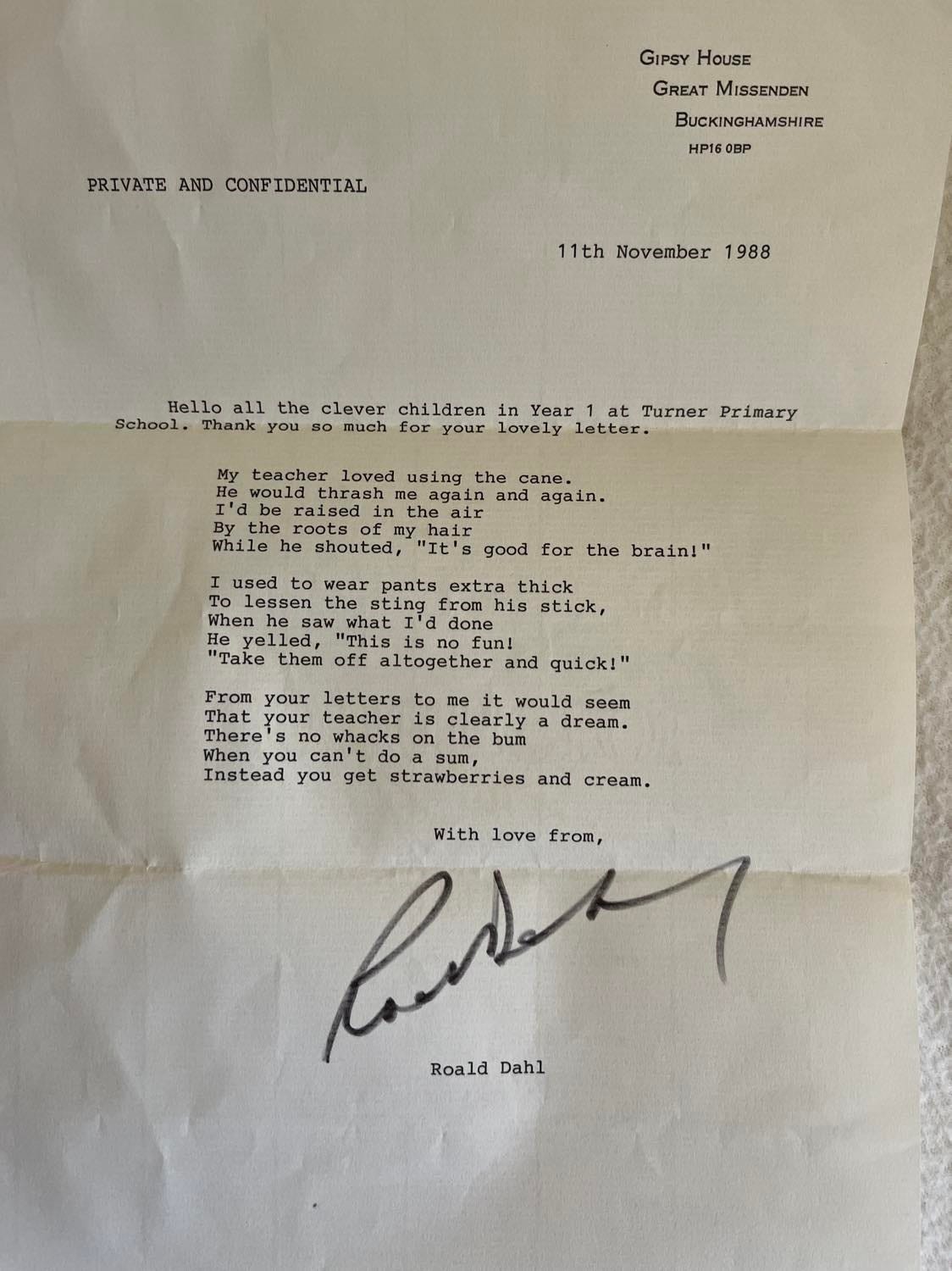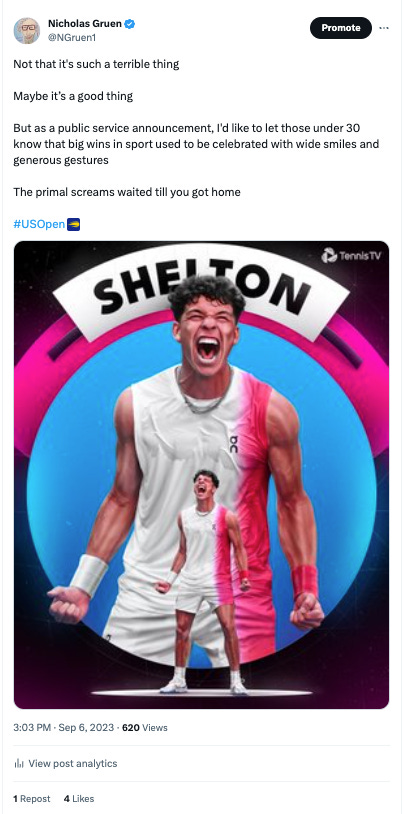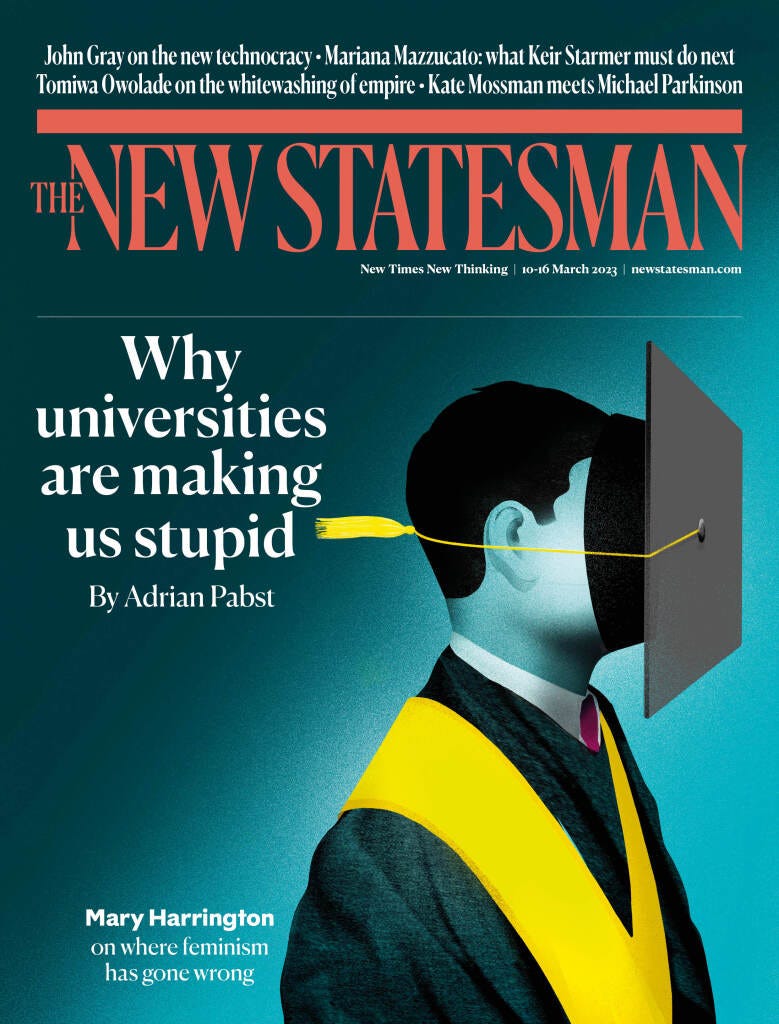Primal screams edition
And lots of other great things I found on the net this week
Me on open-sourcing forecasting in the FT
Herewith a column of mine on forecasting in the FT. I was given a tight 650 word limit and submitted a 648 word draft, but in the upshot space limitations saw my getting cut back to 570 odd words. Still it got my basic message across. Also where comments are usually pretty reflexively negative with lots of people just letting off steam the 115 comments it did get before comments were closed were pretty good and pretty positive:
Today’s four-day weather forecasts are as accurate as one-day forecasts were 30 years ago. Economic forecasts, on the other hand, aren’t noticeably better. Former Federal Reserve chair Ben Bernanke should ponder this in his forthcoming review of the Bank of England’s forecasting.
There’s growing evidence that we can improve. But myopia and complacency get in the way. Myopia is an issue because economists think technical expertise is the essence of good forecasting when, actually, two things matter more: forecasters’ understanding of the limits of their expertise and their judgment in handling those limits.
Enter Philip Tetlock, whose 2005 book on geopolitical forecasting showed how little experts added to forecasting done by informed non-experts. To compare forecasts between the two groups, he forced participants to drop their vague weasel words — “probably”, “can’t be ruled out” — and specify exactly what they were forecasting and with what probability.
That started sorting the sheep from the goats. The simple “point forecasts” provided by economists — such as “growth will be 3.0 per cent” — are doubly unhelpful in this regard. They’re silent about what success looks like. If I have forecast 3.0 per cent growth and actual growth comes in at 3.2 per cent — did I succeed or fail?
Such predictions also don’t tell us how confident the forecaster is. By contrast, “a 70 per cent chance of rain” specifies a clear event with a precise estimation of the weather forecaster’s confidence.
Having rigorously specified the rules of the game, Tetlock has since shown how what he calls “superforecasting” is possible and how diverse teams of superforecasters do even better. What qualities does Tetlock see in superforecasters?
As well as mastering necessary formal techniques, they’re open-minded, careful, curious and self-critical — in other words, they’re not complacent. Aware, like Socrates, of how little they know, they’re constantly seeking to learn — from unfolding events and from colleagues. Superforecasters actively resist the pull to groupthink, which is never far away in most organisations — or indeed, in the profession of economics as a whole, as practitioners compensate for their ignorance by keeping close to the herd. The global financial crisis is just one example of an event that economists collectively failed to warn the world about.
There are just five pages referencing superforecasting on the entire Bank of England website — though that’s more than other central banks. Bernanke could recommend that we finally set about the search for economic superforecasters.
He should also propose that the BoE lead the world by open sourcing economic forecasting. In this scenario, all models used would be released fully documented and a “prediction tournament” would focus on the key forecasts. Outsiders would be encouraged to enter the tournament — offering their own forecasts, their own models and their own reconfiguration or re-parameterisation of the BoE’s models.
Prizes could be offered for the best teams and the best schools and universities. The BoE’s forecasting team(s) should also compete. The BoE could then release its official forecasts using the work it has the most confidence in, whether it is that of its own team(s), outsiders or some hybrid option. Over time, we’d be able to identify which ones were consistently better.
Using this formula, I predict that the Bank of England’s official forecasts would find their way towards the top of the class — in the UK, and the world.
And among a bunch of little nips and tucks, here’s the paragraph they removed which followed immediately after the sentence “Still, that’s more than other central bank.”.
Further the BoE has used its independence boldly and raised more eyebrows than its peers when its research showed how the annual implicit subsidy from the prospect of too-big-to-fail banks being baled out shot up to around a trillion during the GFC before settling down to a cool US$200 odd billion. Still, a single person was involved all that work (and all five mentions of “superforecasting”): Andy Haldane — my favourite civil servant in all the world. Today he graces these pages but has moved on from the Bank.
Why Steve Jobs is like the Doge of Venice:
Lessons we can all learn from software
My friend Antonios Sarhanis is a philosophy graduate turned software guy and runs a software business in Melbourne. Whenever I'm detailing various bizarre practices in ordinary white collar workforces Antonios will often say that that doesn't happen in the management of software development. That's because it's really a 'blue collar job' which is to say that it's producing an output which is very tangible — and where there's a fairly straightforward relationship between doing a good or bad job and the software working well or badly.
In lots of white collar jobs that's not the case. The upshot is that software development eschews oodles of bad practices that are endemic. We discuss everything from the value of formal education in the field to the intricacies of being a ten x engineer. There are a cast of characters you've heard of — like Bill Gates, Paul Keating, Steve Jobs and the Doge of Venice. If you'd prefer to just listen to the audio, it's here.
From Roald with love
My wife Eva was cleaning over the weekend and came upon a letter. She had got her class at Griffith Primary in the ACT to write to Roald Dahl with their stories. And this letter arrived in response.
The subject on everyone’s lips
(Primal screams since you ask …).
Cordially yours, Annabel
I saw all the ados (about nothing?) on Annabel Crabb’s Kitchen Cabinet with Peter Dutton. But took no notice. I do subscribe to my friend Tim Dunlop’s Substack and saw he had written about it, but there didn’t seem to be anything to write about so I moved on. As I put it in my heading on a tweet in last week’s newsletter “Journalist humanises politician over a meal: SHOCK!!”.
Humanising politicians seems fine to me. They are, after all, human. The more so these days given that gotcha questions simply send the pollies back to their talking points. At least on a human interest story I might discover something of interest that I don’t konw. Anyway, this week Tim has circulated Annabel’s reply and I must say I loved the way it elucidated her craft in Kitchen Cabinet. And it elucidated its gender dimensions brilliantly. It’s what I call the good sort of feminism, which is to say that it expands the horizons of our debauched (masculine) culture of self-assertion. Kudos to Tim for publishing it.
“I watched the first episode of the new series of Kitchen Cabinet, the one with Peter Dutton, and I’m not sure a lot has improved,” you venture. … The Dutton episode was not the first episode of this season. It just looked that way on Twitter … where a full week of outrage preceded the Dutton episode, during which I was called everything from a lightweight to a racist to a simpering fool, in a frenzy of pre-broadcast speculation so loud that it entirely deafened the broadcast of the ACTUAL first episode, which featured Dai Le, a woman of colour and former child refugee telling her remarkable life story and demonstrating – incredibly clearly – both the value of diversity in the Parliament and the folly of major political parties who take safe seats, and indeed entire migrant communities – for granted.
But you didn’t see the Dai Le episode. In fact, you didn’t even know it existed. And no doubt you won’t watch the two next episodes, which feature First Nations women speaking about their experiences of racism and marginalisation. Because there’s nothing in those episodes for you and your regular audience; there isn’t a lazy op-ed you can squeeze off about the bankruptcy of the politico-media industrial complex. You didn’t even notice them.
Actually, if you watch these episodes beside each other, a clear (and to my mind, fascinating) pattern emerges. Three women of colour tell their stories of epic life disadvantage, pain, bereavement, and fear. We chart how they turn these experiences into public service, overcoming unthinkable obstacles along the way to enter politics. One for the Liberal Party, one for the ALP, and one for the Greens. The one conventional politician we interview – Peter Dutton – has a sheltered childhood (his words) then sees some dreadful things as a young cop, and thereafter has not just a chip on his shoulder about being a police officer but makes his decisions about both parenting and politics through a fear lens, a law-and-order lens. He develops, he acknowledges, a black and white view of the world and its people. He’s never spoken about these matters before in this way. I think that’s “quite interesting” in an alternative prime minister. And worth knowing. The fact that you don’t? I find that interesting too.
I’ve had a look back through your recent writing. And become acquainted with your regular commenters. There’s your audience – Dave, Rod, Adam, Fernando et al – congratulating you on your perceptiveness, you’ve done it again Tim, sock it to em, etc. And it’s nice when your people agree with you. I enjoy that too. But do you know what’s actually hard? Consistency, and treating all interview subjects the same (my politeness, friendly tone, and yes the welcoming kiss) and doing it every time even though sometimes it means people call you a dumb slut and a Nazi sympathiser. Not that you get a lot of that, because your gender guarantees you a different experience on social media from mine.
The skills you talk about in your opening paragraph – and implicitly but unmistakeably write off as essentially deportment, or good hostessing, or charm – those are actual hard skills that make me good at interviewing people, Tim. It’s only in women that these skills are derided as flirtation / sycophancy / fluff. … I’m secure enough in myself that it doesn’t bother me, not these days anyway, but Jeez it shits me that other women, especially younger ones, experience exactly the same thing, especially when it happens at the hands of “progressive” people who would otherwise avow themselves to be enemies of sexism. …
The first thing you need to war-game in any interview is: Why has this person said yes to this interview? What is it that they will be trying to achieve? How will I manage that? Your assumption that I haven’t considered any of these factors is… how do I put this politely, I wonder. Let’s go with: WILDLY CONDESCENDING. One of my operating advantages in Kitchen Cabinet is that interview subjects often assume it will be a doddle because I’m friendly. And sometimes they leave thinking “That was amazing, I nailed that” when in fact the truth is very different. Viewers are smart. They see things. They don’t need me to spell everything out for them.
In the interests of interfaith, intercultural and organism-AI dialogue, I also asked ChatGPT to reproduce Annabel’s letter in the style of Hunter S. Thompson. It replied that it had been waiting for me to ask. This is how it began and the whole thing is extracted at the end of the newsletter.
Tim, my transient companion in this cosmic carnival,
As the multiverse shivers like a jelly on the edge of existence, your recent ramblings on Kitchen Cabinet wafted into my senses, a lost recipe card carried on the zephyrs of the void. It is my cosmic obligation to ladle upon you the wisdom that might have simmered in the cauldron of your mind, had you but stirred the pot before spewing your half-baked perspectives into the cosmic ether.
Yet, as we fox-trot on the lip of the cosmic casserole, I wonder if you have marinated your gray matter in the questions you so brazenly proclaim I have neglected. Have you stewed in the juices of your own existence, questioned the seasoning of your worldview, or considered the palate of those who sup upon your offerings?
Flowers of mourning: by Ned Morgan
Adrian Pabst on the commodification of tertiary education
Adrian Pabst is an interesting and industrious British academic. I agree with most of this tirade against what’s happened in universities, though for my taste it doesn’t quite get to the bottom of what the problem was. Yes it was commodification and yes it was neoliberalism, but surely it was also the way — as right wing Marxist Joseph Schumpeter wrote — each dominant mode of production is built on the mores of the previous mode while it undermines those mores.
And it doesn’t say much about how one might mount some kind of recovery — other than by turning back the clock. Who does? It’s not that I’ve got the answers to these things. At least Pabst and I offer nice little tag lines for our message. I reckon universities have gone from being inefficient but effective to being efficient but ineffective. He reckons that today, “universities make us more competent but less educated”.
Universities were once distinguished as truly civic institutions, neither state-controlled nor market-driven, but rather a “college of colleges” with guild membership and a commitment to collegiality. They blended shared learning with social prestige. This civic ethos is still reflected in the legal status of the university as a registered charity with a mission to contribute to the public good.
Successive governments have wrecked the legacy of tertiary education. In the 1980s Margaret Thatcher forced higher education institutions to compete for funds. Student grants were scrapped in 1990, replaced by loans. From then on students would be forced to contribute to the cost of their degrees. …
The managerial overclass refashioned the entire education system to overvalue all-round minimal competence and undervalue subject-specific excellence. For that reason British universities, and secondary schools, put an emphasis on transferable skills – problem-solving, working to deadlines, analysing data and delivering presentations.
Under bureaucratic pressure, rigorous research has been marginalised. Over-specialisation and the endless recycling of the same material make many papers unreadable even to academics in the same discipline. As many as 82 per cent of published articles in the humanities are not cited and half of all papers get read only by their authors, peer reviewers and editors. Pedagogy fares no better. Teaching involves the active suppression of personal character and creativity. Those have been replaced by sanitised curricula, transferable-skills testing and “learning outcomes” comprehensible only to functionaries.
Unread research and simplified teaching are what happens when universities are governed by instrumental considerations. The perpetual production of papers is a requirement for academics to prosper professionally, just as the pursuit of employability serves the short-term interests of the student consumer.
(Remember, on a lot of the links I provide, like this one, there’s a ‘soft’ paywall which is to say you can register and get access to several items a month (that’s all I’ve got).
Yum!
Wifedom: another bad review
By highly literate Substacker who knows his Orwell — Henry Oliver
I cannot quite fathom why this book was published. Or why the reviews are so tame. It is supposed to tell the story of Eileen O’Shaughnessy, George Orwell’s first wife, and thereby illuminate the modern state of wifedom. But that’s not what Funder achieves. Instead, it’s a medley of suburban memoir, clichéd fictional scenes, and some familiar material about Eileen. Someone else has already written Eileen’s biography, you see, and only three years ago.
The reason for a second life would either be new material or a fresh interpretation. Funder has neither. Instead, she writes about herself reading George Orwell by the swimming pool after ferrying her daughter around, the conscience-pricking note her son wrote which she keeps pinned on the fridge, the fact that her female lawyer friends complain that their husbands don’t do the laundry, and so on. …
The women she refers to as being in the position of modern wifedom—comparable to Eileen—are professionals with husbands who don’t pull their weight. Comparing this to someone who gave up her career, and ended-up clearing out the overflowing latrine in a remote cottage with few amenities or conveniences (like electricity) while her manipulative husband wrote second-rate novels and ignored her sexually, isn’t very convincing. Especially when you add in the fact that Orwell was a terrible sex pest who tried it on with all of Eileen’s friends. …
Not only are the invented scenes trite, they make large claims about Orwell that aren’t substantiated. Was the sex perfunctory? Did Eileen react like that when he announced he was going to Spain? … Funder writes that “clearly” Eileen had told the vicar to remove the word “obey” from the wedding vows. Orwell said that other parts of the service were missed out too. I was intrigued—did Eileen ask for these other things to be removed? What were they? I looked for the source. No footnote. Eileen’s previous biographer, Sylvia Topp, makes this same claim, referencing Orwell biographer Gordon Bowker. But Bowker has assumed this is what Eileen did. “Eileen, it seems, had arranged with John Woods to omit at least one of the vows...” He also has no source.
So perhaps Eileen arranged it, perhaps the vicar fumbled, perhaps, perhaps, perhaps. But this trail of speculation has been written up as near-fact. Apparently many suffragettes removed “obey”—if that’s the cause of this speculation, then tell me! Add it as useful context! But don’t just interpose your assumptions like this.
Weaponising Pushkin
Another great essay on the excellent Inside Story.
The Russian embassy had written to ANU proposing to present it with a bronze bust of the poet Alexander Pushkin “donated by a philanthropist.” … Perhaps emboldened by the university’s assent, the embassy responded with a further request. On behalf of the Russian government, it also wished to confer on the university’s chancellor, Australia’s former foreign affairs minister Gareth Evans, “a medal for promoting international cooperation.”
This new offer struck us both as an ingenious ploy to have the university’s most senior figure preside over the unveiling of the bust. The embassy could then inform the foreign affairs ministry in Moscow, and presumably the anonymous philanthropist, that it had pulled off a public relations coup. The offer of the bust was unremarkable. One of the jobs of an embassy is to build networks of contacts that might prove useful in acquiring and exercising influence in its host country. …But the context was important. Relations between Australia and Russia had been tense since Vladimir Putin annexed Crimea in 2014. … My only cavil with Evans’s refining of my [draft of his speech] was his insertion of the words “the Russian soul” at one point.
In my view, the expression supports the notion that Russians are somehow emotionally more profound than other peoples. Exactly that claim was made a year after the ANU ceremony by one Valery Malinovsky, who … was a prominent figure in the pro-Putin claque in Australia. In the same vein, here is Putin in 2014:
So, what are our particular traits? It seems to me that the Russian person thinks mainly about the highest moral truths. Western values are different, focused on oneself. Personal success is the measure of success in life: the more successful a man is, the better he is. This is not enough for us… we are less pragmatic, less calculating than other peoples, we have bigger hearts. Perhaps this reflects the grandeur of our country, its boundless expanses. Our people have a more generous spirit.
An inscription beneath the bust given to ANU records that it was donated not by a philanthropist but by … [a] “charity fund” [which], while purporting to be some manner of non-government organisation … is in fact an agency of the Russian state. …
The fund’s website reveals ties between the fund and prominent members of Putin’s close entourage, including Sergei Naryshkin, a member of the National Security Council and head of SVR, Russia’s foreign espionage service, and Sergei Glaz’ev, “Advisor to the President for Eurasian Cooperation.” Glaz’ev, who is among the most energetic proponents of the forcible reabsorption of Ukraine into the Russian empire, also has ties to the Australian Citizens Party via the LaRouche movement, a longstanding far-right American activist group.
The Woke Meritocracy
A good piece.
In almost every instance, my students come to study at the University of Chicago not because some particular quality about this school (its “nerdy” reputation, location, etc.) appealed to them, but because it was the “highest-ranked” school that accepted them. Once here, they organize their leisure and career aspirations around rankings. Many student clubs require potential members to submit applications and undergo interviews, and students seem to get a certain sadistic thrill from doing to others as the educational system has done to them. Already in their sophomore years, they are applying for internships that will open paths to careers in consulting and finance, which they also perceive in terms of rank—only a few “top” firms in New York, they have learned from peers and parents, are worthy of a bright young person’s ambition.
But many of my students have also learned that, while working themselves to the top of whatever rankings are on offer is the only way to prove themselves worthy of respect, they must combine their ambition with affability. This is not an easy lesson—less socially skilled students often rankle faculty sensibilities by directly asking, even fighting, for a better grade. Too transparent in their striving desperation, they lose out to more Machiavellian peers.
One of my most disturbingly honest students, a young Asian American man who often wore a sweatshirt letting fellow students know he had attended one of the most expensive high schools in the country, told me that his parents had made him “do sports as a kid, so that white people would like me.” Indeed, he had the casual, embodied confidence of someone who had grown up knocking limbs against the sons of old money. He had figured out for himself, he said, to approach English teachers with poignant anecdotes about how much a particular poem had touched him—dazzled by the possibility of living their Dead Poets Society fantasies, how could they give less than an A to such a sensitive, promising young man? …
What is new about education’s turn to woke identity politics is not the fact that administrators and faculty are influencing students’ sense of self, but rather the sort of values that the new ideal personality is supposed to uphold. The contemporary ideal, increasingly, is no longer someone so charmingly personable that others forget he is in fact a ruthless competitor, but a person who so convincingly narrates her having overcome some kind of social injustice that others forget she is in fact a beneficiary of systems of privilege.
JFK decoded
Hunter S. Thompson channels Annabel Crabb
Tim, my transient companion in this cosmic carnival,
As the multiverse shivers like a jelly on the edge of existence, your recent ramblings on Kitchen Cabinet wafted into my senses, a lost recipe card carried on the zephyrs of the void. It is my cosmic obligation to ladle upon you the wisdom that might have simmered in the cauldron of your mind, had you but stirred the pot before spewing your half-baked perspectives into the cosmic ether.
Let’s carve through the fat: I am under no illusion that my work is a sacred cow, untouchable by the cleavers of critique.
Yet, as we fox-trot on the lip of the cosmic casserole, I wonder if you have marinated your gray matter in the questions you so brazenly proclaim I have neglected. Have you stewed in the juices of your own existence, questioned the seasoning of your worldview, or considered the palate of those who sup upon your offerings?
Now, let us dive into the absinthe-laced broth of your narrative. You paint a still life of the Women World Changers conference, where, in your recollection, you were the master chef of the day. Yet, my memory, a swirling maelstrom of interstellar spices, recalls Valerie Jarrett as the true culinary virtuoso. You, too, were there, concocting a melange of flavors about the future of work, as the tendrils of my mind’s tastebuds recall.
I, the "funny, accomplished" MC, played the role of cosmic sommelier, guiding the masses through a galaxy of flavors while the "keynote" chef served up the main course. Your intro subtly insinuates, "I harbor no resentment towards her. She is a maestro in the kitchen. If that's your cup of tea."
And then, like a shot of tequila in a pot of tea, the "but" lands with a sizzling intensity. "This discourse is about journalism, and Annabel Crabb's latest culinary adventure, Kitchen Cabinet."
Translation: Gather round, star children! I have acknowledged the cosmic sommelier; now let the gonzo chef impart wisdom on the sacred art of journalism.
You declare with the fervor of a flambe, "Kitchen Cabinet raises questions that echo in the corridors of the cosmic kitchen." You question whether my show is a feast for the senses or merely a snack, arguing that politicians should be roasted on the spit of scrutiny, not basted in a buttery balm of comfort. You reference Amy McQuire's critique of the Scott Morrison episode from the FIFTH series (not the first, as your memory mischievously suggested) and essentially accuse me of being adrift in a sea of culinary cluelessness until controversy catapulted me into the vortex of awareness.
You then simmer on the Peter Dutton episode, mistakenly crowning it the amuse-bouche of the season. It wasn't. The premiere featured Dai Le, a warrior of color and former child refugee. But that episode slipped through the sieve of your consciousness, didn't it? Probably won't bother with the episodes featuring First Nations women discussing the hydra of racism and marginalization either, right? Nothing savory there for you and your coterie of culinary critics – Dave, Rod, Adam, Fernando, and the rest of the self-congratulatory supper club.
Your piece essentially dismisses the interviewing skills I’ve refined to a razor-sharp chef’s knife – the politeness, friendly tone, and welcoming demeanor – as mere table manners, flirtation, or sycophancy. It seems these skills are only devalued when wielded by women. If I had a dollar for every time some kitchen knave told me to “get back to the kitchen” or branded me “fluffy” or “vacuous,” I'd be swimming in a sea of truffles. I don't let it curdle my cream, but it boils my bouillabaisse that other women, especially the fledglings, endure the same venomous sexism, even from the so-called “progressives.”
I wonder if you’ve ever navigated the minefield of a live broadcast, Tim. It’s a dance on a tightrope strung across a simmering cauldron, especially with seasoned interviewees. You must juggle a smorgasbord of tasks while remaining vigilant to shifts in mood or unexpected morsels of insight. The goal is to craft an environment where evading questions becomes as awkward as a porcupine in a patisserie. In Kitchen Cabinet, I achieve this by making it tonally jarring for politicians to sidestep questions they would typically dodge with the grace of a soufflé chef. I bring them dessert, forsake the notebook, occupy their hands, deploy a battalion of cameras to avoid interruptions, and leverage every ounce of my culinary cunning to create an authentic conversation, not a robotic interview. It’s not because I relish prancing around with a basket; it’s because it’s a damn effective recipe.
So, Tim, before you embark on your gonzo journey into the quagmire of political journalism, perhaps take a moment to reflect on the method behind my madness. And maybe, just maybe, expand your horizons beyond the narrow confines of your own preconceptions. Because, in the grand tapestry of the cosmos, we are all but a speck of seasoning in a celestial stew.
Yours in cosmic culinary camaraderie,
Annabel Crabb
P.S. As Hunter S. Thompson once mused, "When the going gets weird, the weird turn pro." In the world of political journalism, it doesn't get much weirder than Kitchen Cabinet. Bon appétit!





















